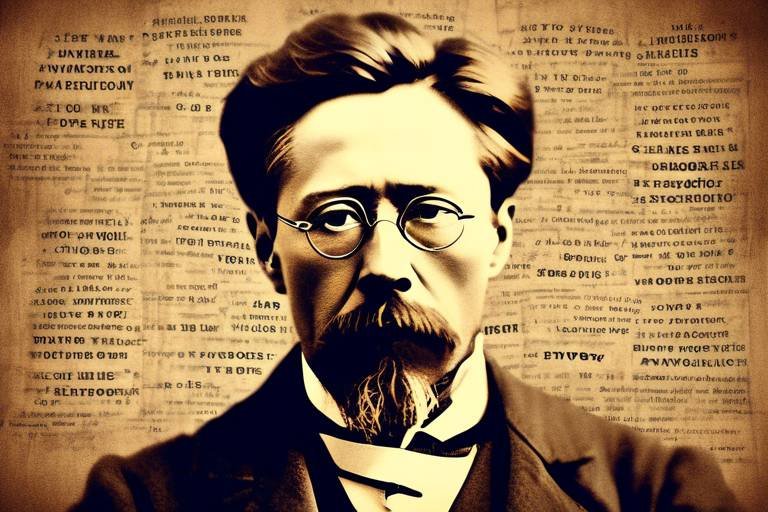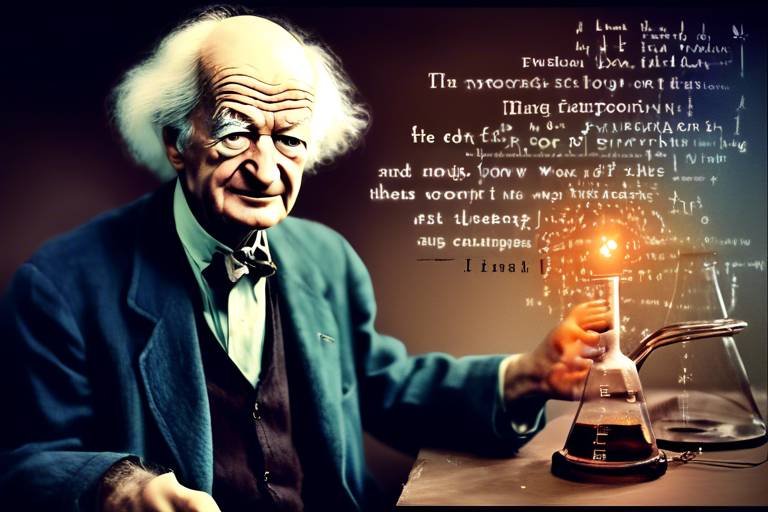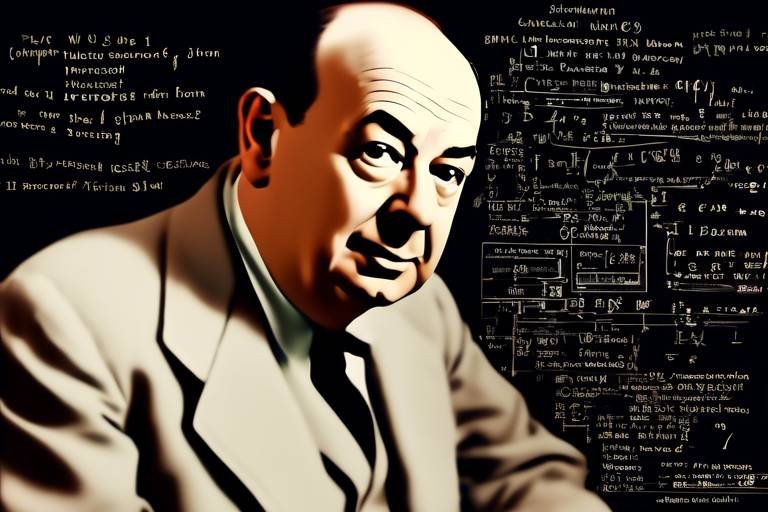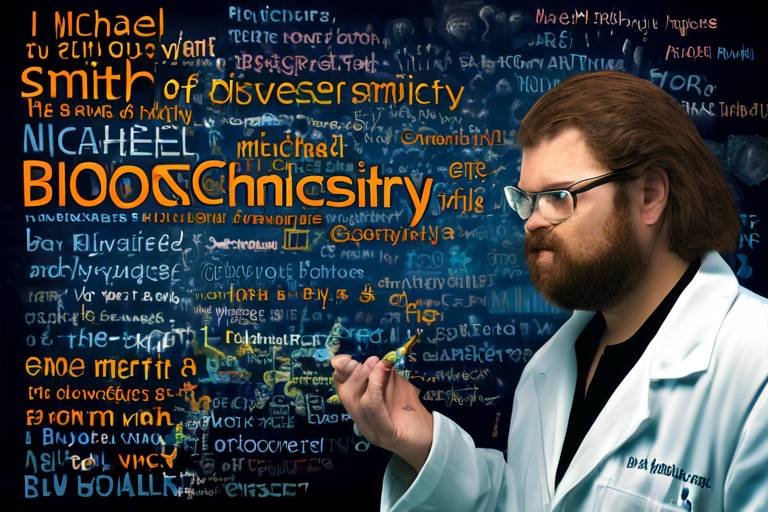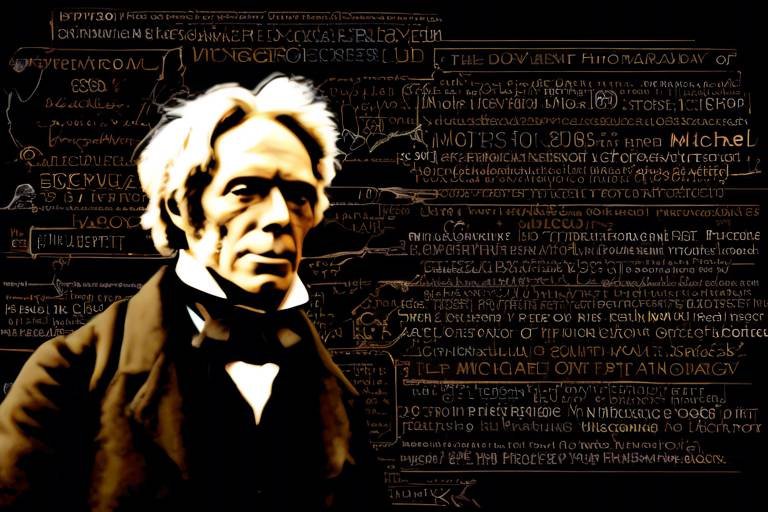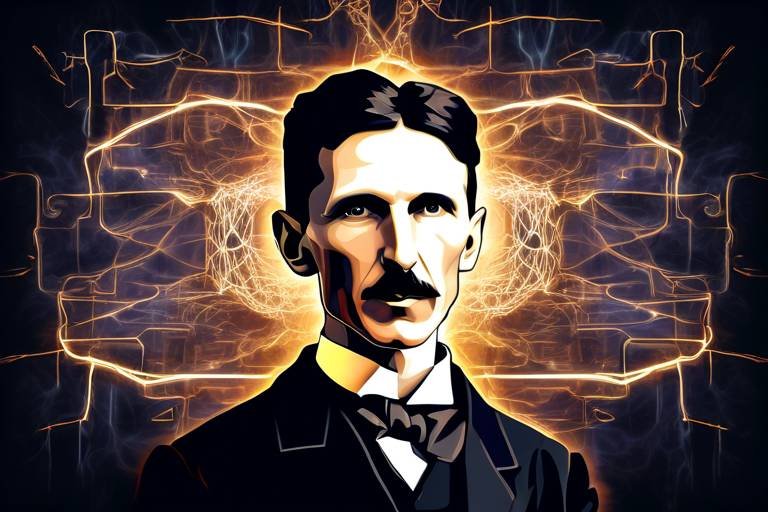The Legacy of Neil deGrasse Tyson in Science Education
Neil deGrasse Tyson is not just a name; he is a phenomenon in the realm of science education. With his charismatic personality and profound knowledge, Tyson has reshaped how science is perceived and taught. His journey from a curious young boy in the Bronx to a renowned astrophysicist and science communicator is nothing short of inspirational. Tyson’s legacy is built on his ability to make complex scientific concepts not only understandable but also exciting for everyone, especially students. He has a unique talent for turning what might seem like abstract theories into relatable stories that ignite passion and curiosity among learners. This article delves deep into the remarkable impact Tyson has made in the field of science education, highlighting his innovative methods, advocacy for STEM, and the inspiration he continues to provide to both students and educators.
Neil deGrasse Tyson has truly transformed the landscape of popular science. Remember those moments in school when science felt like a chore? Tyson has flipped that narrative on its head. Through his engaging communication style, he has made intricate topics not just accessible but downright thrilling for the general public. His ability to break down complex ideas into bite-sized, digestible pieces is a game-changer, particularly for students who may feel overwhelmed by scientific jargon. Whether it's through his books, television appearances, or social media presence, Tyson has made it his mission to spark excitement about science. He has a knack for using everyday language and relatable analogies, which makes learning feel less like a daunting task and more like an adventure. Imagine learning about black holes through the lens of a cosmic rollercoaster ride—Tyson brings that kind of energy to science education!
Tyson has emerged as a formidable advocate for STEM (Science, Technology, Engineering, and Mathematics) education. In today's rapidly evolving world, understanding these fields is more crucial than ever. Tyson emphasizes that STEM education is not just for future scientists or engineers; it's essential for everyone. He encourages young people to explore these disciplines, highlighting the myriad of career opportunities they offer. Through various initiatives, he has made it clear that pursuing a career in STEM can lead to exciting innovations and solutions to real-world problems. Tyson's message resonates with students from all walks of life, reminding them that they can be the next generation of innovators and thinkers.
One of Tyson's most impactful approaches is his focus on engaging the youth. He understands that to cultivate a love for science, it must be relatable and fun. Through his initiatives and outreach programs, Tyson uses relatable examples and interactive experiences that ignite curiosity and passion for learning. He often shares stories from his own life, making science feel personal and achievable. By connecting scientific concepts to everyday experiences, he encourages students to ask questions and explore the world around them. It’s not just about memorizing facts; it’s about fostering a mindset of inquiry and exploration.
Tyson frequently conducts workshops and seminars aimed at educators, providing them with innovative teaching strategies to engage students and foster a love for science. These sessions are not just about imparting knowledge; they are about empowering teachers to inspire their students. Tyson shares techniques that make science interactive and fun, ensuring that educators leave with practical tools they can implement in their classrooms. The ripple effect of these workshops is profound—when teachers are excited about science, their enthusiasm is contagious, and students are more likely to catch that spark.
Through captivating public speaking events, Tyson motivates young minds to explore scientific concepts. His talks are filled with personal anecdotes, humor, and a contagious passion for science. He often addresses common misconceptions and encourages critical thinking, urging his audience to question the world around them. Tyson's ability to connect with people, regardless of their background or level of understanding, is a testament to his skill as a communicator. He doesn’t just preach; he engages, making science a shared journey of discovery.
In today’s digital age, Tyson effectively uses various media platforms to reach a broader audience. From television shows like "Cosmos" to his active presence on social media, he makes science education more accessible and relatable to diverse groups. Tyson understands that to capture the attention of the younger generation, you have to meet them where they are. By utilizing engaging visuals, interactive content, and engaging narratives, he has transformed the way science is communicated and consumed.
Tyson has played a significant role in developing science curricula that reflect contemporary scientific understanding. He advocates for educational systems to evolve alongside scientific advancements so that students receive a well-rounded education that prepares them for the future. By collaborating with educational institutions, Tyson has helped create programs that not only enhance science literacy but also encourage critical thinking among students. His contributions ensure that the curriculum is not just a list of facts but a dynamic framework that fosters inquiry and exploration.
His partnerships with schools and universities have led to the creation of innovative programs that enhance science literacy and critical thinking among students. These collaborations often focus on hands-on learning experiences, allowing students to engage in real-world scientific inquiry. Tyson’s influence in these settings helps bridge the gap between theoretical knowledge and practical application, making learning more relevant and exciting.
Tyson actively promotes inclusivity in science, advocating for underrepresented groups and encouraging diverse voices in the scientific community. He believes that diversity enriches the educational experience for all students, leading to a broader range of ideas and perspectives. By championing inclusivity, Tyson not only paves the way for future scientists from varied backgrounds but also helps create a more equitable scientific community.
As Tyson continues to influence the field of science education, his legacy will likely inspire future generations of scientists, educators, and students to pursue knowledge and innovation. His work has laid a foundation that encourages curiosity, critical thinking, and a passion for discovery. In a world that increasingly relies on scientific understanding, Tyson’s contributions are invaluable, ensuring that the next generation is equipped to tackle the challenges of tomorrow.
- What is Neil deGrasse Tyson's main contribution to science education? Tyson's main contribution lies in his ability to make complex scientific concepts accessible and exciting for the general public, particularly students.
- How does Tyson engage young people in science? He uses relatable examples, interactive experiences, workshops, and public speaking events to inspire curiosity and passion for learning.
- Why is STEM education important? STEM education is crucial as it prepares students for a rapidly evolving job market and encourages innovation and problem-solving.
- What role does Tyson play in curriculum development? Tyson collaborates with educational institutions to develop curricula that reflect contemporary scientific understanding and foster critical thinking.
- How does Tyson promote inclusivity in science? He advocates for underrepresented groups in science, encouraging diverse voices and perspectives to enrich the educational experience.

Influence on Popular Science
Neil deGrasse Tyson has undeniably transformed the landscape of popular science. His ability to communicate complex scientific concepts in an engaging and relatable manner has made him a household name. Imagine trying to explain the intricacies of astrophysics to a group of high school students. It can be daunting! Yet, Tyson excels at breaking down barriers, making science not just understandable but exciting. He has taken the often-dry world of science and infused it with a sense of wonder and curiosity that resonates with audiences of all ages.
One of the key ways Tyson has influenced popular science is through his use of storytelling. He doesn’t just present facts; he weaves narratives that capture the imagination. For instance, when discussing the vastness of the universe, he might compare it to a vast ocean, making it easier for listeners to grasp the enormity of space. This approach not only informs but also inspires, encouraging people to explore and question the world around them.
Tyson's impact extends beyond the classroom and into the realm of media. Through his television shows, such as Cosmos: A Spacetime Odyssey, he has reached millions, sparking interest in science among viewers who may never have considered it before. His charismatic presence and passion for science shine through, making complex topics accessible. The show itself serves as a bridge between science and the public, illustrating the beauty of the universe while simultaneously educating viewers.
Moreover, Tyson's presence on social media platforms has further amplified his influence. With millions of followers on platforms like Twitter and Instagram, he engages directly with the public, sharing insights, answering questions, and debunking myths. His posts often blend humor with education, proving that science can be fun and entertaining. This direct line of communication fosters a community of curious minds eager to learn more about the universe.
In addition to his media presence, Tyson has authored several books, each one a testament to his commitment to making science accessible. Titles like Astrophysics for People in a Hurry distill complex ideas into digestible formats, appealing to readers who may feel intimidated by traditional science literature. Through these works, he encourages readers to dive deeper into scientific topics, igniting a passion for knowledge.
Ultimately, Neil deGrasse Tyson's influence on popular science is profound and far-reaching. By making science relatable and engaging, he not only educates but also inspires a new generation of thinkers and dreamers. His work serves as a reminder that science is not just a field of study; it's a way of understanding the world and our place in it. As we continue to navigate the complexities of the universe, Tyson's legacy will undoubtedly motivate countless individuals to explore the wonders of science.

Advocacy for STEM Education
Neil deGrasse Tyson has emerged as a powerful voice in advocating for STEM education, a term that encompasses the fields of Science, Technology, Engineering, and Mathematics. In a world that is rapidly evolving, the importance of these disciplines cannot be overstated. Tyson emphasizes that, in order to compete on a global scale, young people must be equipped with the knowledge and skills that STEM education provides. He believes that fostering a strong foundation in these areas is essential for not just individual success, but also for the advancement of society as a whole.
Through his various platforms, Tyson tirelessly champions the need for increased investment in STEM programs, particularly in underserved communities. He often points out that the future of our planet relies heavily on the next generation of thinkers and innovators. By encouraging students to engage with STEM subjects, Tyson aims to ignite a passion for learning that can lead to groundbreaking discoveries and technological advancements. He frequently shares stories of how early exposure to science and math shaped his own life, making a compelling case for why every child should have access to quality STEM education.
Tyson's advocacy is not just about promoting STEM for the sake of numbers; it’s about inspiring a sense of wonder and curiosity. He often asks, “What could be more exciting than exploring the universe and uncovering its mysteries?” This rhetorical question serves to remind students that science is not merely a set of formulas and equations, but a thrilling journey of discovery. His enthusiasm is infectious, and it resonates particularly well with young minds who are just beginning to explore their interests.
In addition to his public speaking engagements, Tyson collaborates with various organizations to create programs that make STEM education more engaging. For instance, he supports initiatives that incorporate hands-on experiments and real-world applications into the curriculum, allowing students to see the relevance of what they are learning. Interactive learning experiences have proven to be effective in capturing students' attention and encouraging them to think critically about the world around them.
Furthermore, Tyson is a strong advocate for diversity in STEM fields. He believes that a wide range of perspectives leads to more innovative solutions to the challenges we face. By promoting inclusivity and encouraging participation from underrepresented groups, Tyson aims to create a more equitable landscape in science and technology. He often highlights the importance of role models in these fields, stressing that seeing people who look like them in positions of success can inspire young students to pursue similar paths.
Ultimately, Tyson's advocacy for STEM education is about creating a future where every student has the opportunity to explore their potential. By breaking down barriers and making science accessible to all, he is not only shaping the minds of future scientists but also fostering a culture of inquiry and innovation that can lead to a brighter tomorrow.
- Why is STEM education important? STEM education is crucial as it equips students with essential skills needed for the future job market and helps in developing critical thinking and problem-solving abilities.
- How does Neil deGrasse Tyson contribute to STEM education? Tyson contributes through public speaking, workshops, and initiatives aimed at inspiring young people and advocating for inclusivity in science.
- What are some ways to engage students in STEM? Engaging students can be achieved through hands-on experiments, interactive learning experiences, and real-world applications of scientific concepts.

Engaging the Youth
Neil deGrasse Tyson has a remarkable knack for , turning the often daunting world of science into an exciting adventure. He understands that young minds are like sponges, ready to soak up knowledge, but they need the right stimuli to ignite their curiosity. Through his innovative initiatives and outreach programs, Tyson connects with students on a level that resonates deeply with them. Imagine walking into a classroom where science isn't just a subject but an exhilarating journey into the cosmos! That's the kind of magic Tyson brings.
One of the key elements of Tyson's approach is using relatable examples that speak directly to the interests and experiences of young people. Whether it's discussing the latest space discoveries or the science behind popular movies, he crafts narratives that make complex concepts feel accessible. For instance, he often relates the vastness of the universe to everyday experiences, helping students grasp the enormity of space in a context they can understand. This method not only makes learning fun but also fosters a lasting love for science.
Moreover, Tyson emphasizes the importance of interactive experiences in his outreach efforts. He often organizes events where students can engage in hands-on activities, experiments, and discussions that spark their imagination. By creating an environment where questions are encouraged and exploration is celebrated, he cultivates a space where students feel empowered to delve into scientific inquiry. These interactions are not just about absorbing information; they are about experiencing science firsthand, which leaves a profound impact on young minds.
Tyson's workshops and seminars are another avenue through which he engages the youth. These sessions are designed to be dynamic and participatory, allowing students to collaborate and share their thoughts. In these settings, he often incorporates technology, such as virtual reality, to transport students to distant planets or inside the human body, making the learning experience immersive and unforgettable. The excitement in the room is palpable as students realize that science isn't just about textbooks; it's a living, breathing field that shapes our understanding of the universe.
In addition to hands-on learning, Tyson also leverages the power of storytelling. He shares personal anecdotes from his own journey in science, illustrating the challenges and triumphs he faced along the way. This not only humanizes the field of science but also inspires students to see themselves as potential scientists. When they hear about Tyson's experiences, it becomes clear that the path to discovery is filled with curiosity, resilience, and, most importantly, fun!
To further enhance his outreach, Tyson often collaborates with schools to create tailored programs that address the specific interests and needs of students. These partnerships result in unique opportunities for students to engage with science outside the traditional classroom setting. For example, workshops might include field trips to planetariums or science centers, where students can experience the wonders of the universe up close. This blend of education and adventure captivates young audiences, making them eager to learn more.
In conclusion, Neil deGrasse Tyson's efforts to engage the youth in science are nothing short of revolutionary. By making science relatable, interactive, and exciting, he inspires the next generation to explore the cosmos and beyond. His work not only lights a fire in young minds but also cultivates a sense of wonder and curiosity that will last a lifetime. As he continues to break down barriers and redefine science education, the impact of his legacy will undoubtedly echo through the halls of future classrooms, encouraging countless students to reach for the stars.

Workshops and Seminars
Neil deGrasse Tyson has made a remarkable impact through his , which are designed not only to educate but also to inspire. These events are tailored for a wide range of audiences, from educators to students, and they focus on innovative teaching strategies that can be implemented in the classroom. Tyson understands that teaching science is not just about delivering facts; it's about igniting a passion for discovery and exploration. He often emphasizes the importance of making science relatable, using real-world examples and engaging activities that resonate with learners.
During these workshops, Tyson shares his unique approach to science communication, which is characterized by a blend of enthusiasm, humor, and clarity. He encourages educators to break down complex scientific concepts into digestible pieces, making them accessible to students of all ages. For instance, he might use analogies that connect scientific principles to everyday experiences, helping students to see the relevance of science in their lives. This method not only aids comprehension but also fosters a deeper appreciation for the subject.
Moreover, Tyson's seminars often include interactive components, where participants can engage in hands-on experiments or group discussions. This dynamic environment promotes collaboration and allows educators to share their own experiences and strategies. Tyson believes that when educators feel empowered and equipped with the right tools, they can pass on that enthusiasm to their students, creating a ripple effect of curiosity and innovation.
One of the standout features of Tyson's workshops is the emphasis on critical thinking. He encourages educators to challenge their students to question the world around them, fostering a mindset of inquiry and exploration. By integrating critical thinking into the curriculum, Tyson aims to prepare students for the complexities of the modern world, where scientific literacy is more essential than ever.
In summary, Neil deGrasse Tyson's workshops and seminars are more than just educational sessions; they are transformative experiences that empower educators and inspire students. By equipping teachers with innovative strategies and encouraging a spirit of inquiry, Tyson is helping to shape the next generation of scientists and thinkers.
- What topics are covered in Neil deGrasse Tyson's workshops?
Tyson's workshops cover a range of topics including science communication, critical thinking, and innovative teaching strategies that make science relatable and engaging. - Who can attend these workshops?
The workshops are designed for educators, students, and anyone interested in enhancing their understanding of science education. - Are there any fees associated with attending?
Fees may vary depending on the specific event; it's best to check the official announcements for details on registration and costs. - How can I find out about upcoming workshops?
You can keep an eye on Neil deGrasse Tyson's official website and social media channels for announcements regarding upcoming workshops and seminars.

Public Speaking Events
Neil deGrasse Tyson has captivated audiences around the world through his dynamic public speaking events, where he transforms the often daunting realm of science into a thrilling adventure. His ability to engage and inspire is unparalleled, as he uses humor, storytelling, and relatable anecdotes to break down complex scientific concepts. Imagine sitting in a packed auditorium, the lights dimmed, and Tyson steps onto the stage—his presence alone is magnetic. He has a knack for making you feel like you’re part of a grand conversation about the universe, rather than just a passive listener.
One of the most remarkable aspects of Tyson's talks is how he connects with his audience. He often shares personal stories from his own journey in science, revealing his childhood curiosity and the pivotal moments that shaped his career. This personal touch not only makes the science more relatable but also encourages young minds to embrace their own passions. Tyson's message is clear: science is not just for scientists; it’s for everyone. He often poses rhetorical questions that challenge the audience to think critically and engage with the material on a deeper level.
Moreover, Tyson's public speaking events are not just about delivering information; they are interactive experiences. He frequently invites questions from the audience, creating a dialogue that fosters a sense of community and shared learning. This approach not only demystifies science but also empowers individuals to explore their curiosities without fear of judgment. Tyson’s events are like a scientific pep rally, where the excitement of discovery is palpable, and the joy of learning is celebrated.
In addition to his storytelling prowess, Tyson utilizes multimedia presentations that enhance the learning experience. Stunning visuals, animations, and thought-provoking videos are often incorporated into his talks, making the content not just informative but also visually engaging. For instance, he might show stunning images from the Hubble Space Telescope while discussing the vastness of the universe, allowing the audience to visualize concepts that are otherwise hard to grasp.
To give you a glimpse of the impact of his public speaking, here’s a brief overview of some notable events:
| Event | Location | Year | Theme |
|---|---|---|---|
| Cosmic Perspectives | New York City | 2019 | Exploring the Universe |
| Science in the City | Los Angeles | 2020 | The Future of Space Exploration |
| Ignite the Universe | Chicago | 2021 | Curiosity and Discovery |
These events are not just lectures; they are celebrations of knowledge and inquiry. Tyson's ability to weave together the threads of science, philosophy, and human experience makes each event a unique opportunity for attendees to expand their understanding of the world around them. Whether you are a seasoned scientist or a curious novice, Tyson's public speaking events leave an indelible mark, inspiring a new generation to look up at the stars and wonder.
- What topics does Neil deGrasse Tyson cover in his talks? Tyson covers a wide range of topics, including astrophysics, space exploration, and the importance of science in everyday life.
- How can I attend one of his public speaking events? You can check his official website or social media pages for announcements regarding upcoming events and ticket availability.
- Does Tyson engage with the audience during his talks? Yes, he often encourages audience participation and invites questions to foster an interactive experience.
- What age group is his audience? Tyson’s talks are suitable for all ages, as he tailors his content to be accessible to everyone, from children to adults.

Utilizing Media Platforms
Neil deGrasse Tyson has masterfully harnessed the power of media platforms to amplify his message and make science education more accessible to everyone. In a world where information is at our fingertips, Tyson understands that reaching out through various channels is essential to engage a broader audience. Whether it’s through television, social media, or podcasts, he has effectively transformed the way we consume scientific knowledge.
One of the most notable examples of his media prowess is his role in popular science television shows. Programs like Cosmos: A Spacetime Odyssey have not only captivated audiences but also reignited interest in the wonders of the universe. Tyson’s ability to present complex scientific concepts in an entertaining and digestible manner has made such shows a staple for both young and old learners alike. His charisma shines through as he connects with viewers, making them feel like they are part of a grand scientific journey.
In addition to traditional media, Tyson has embraced the digital landscape. His active presence on social media platforms such as Twitter and Instagram allows him to engage directly with his followers. Here, he shares fascinating facts, answers questions, and challenges misconceptions about science. This direct interaction fosters a sense of community among his audience, encouraging them to explore science beyond the classroom. For instance, Tyson often posts thought-provoking questions or intriguing scientific phenomena that spark discussions and drive curiosity among his followers.
Moreover, Tyson has ventured into the world of podcasts, creating a space where he can delve deeper into scientific topics. His podcast, StarTalk, blends humor with science, inviting guests from various fields to discuss everything from black holes to pop culture. This approach not only entertains but also educates listeners, making science feel relevant and approachable. By utilizing these media platforms, Tyson has effectively dismantled the barriers that often separate people from scientific understanding.
Through his innovative use of media, Tyson has opened up a world of possibilities for learners everywhere. He demonstrates that science is not just a subject confined to textbooks but a vibrant and dynamic field that intersects with our everyday lives. By making science engaging and relatable, he inspires a new generation of thinkers, dreamers, and doers.
In summary, Tyson's strategy of utilizing various media platforms has revolutionized how science education is delivered. He has proven that when science is communicated effectively, it can inspire curiosity and a lifelong passion for learning. As we look to the future, it’s clear that Tyson's media initiatives will continue to play a crucial role in shaping the landscape of science education.
- What is Neil deGrasse Tyson known for?
Neil deGrasse Tyson is known for his work as an astrophysicist, science communicator, and author. He is particularly recognized for making science accessible and engaging to the general public. - How does Tyson engage with young audiences?
Tyson engages with young audiences through various initiatives, including workshops, public speaking events, and his active presence on social media platforms. - What impact has Tyson had on science education?
Tyson has significantly impacted science education by advocating for STEM fields, promoting inclusivity, and developing innovative curricula that resonate with students. - Where can I find Tyson's media content?
You can find Tyson's media content on television shows like Cosmos, his podcast StarTalk, and his active social media accounts.

Contributions to Curriculum Development
Neil deGrasse Tyson has made significant strides in curriculum development, ensuring that science education is not only relevant but also engaging for students of all ages. His efforts have been instrumental in reshaping how science is taught in classrooms across the nation. By collaborating with educational institutions, Tyson has helped create programs that are both innovative and reflective of contemporary scientific understanding. This collaboration has resulted in curricula that are not just about rote memorization of facts, but rather about fostering critical thinking and problem-solving skills.
One of the key aspects of Tyson's contributions is his focus on real-world applications of scientific concepts. He believes that students learn best when they can see how science affects their daily lives. For instance, in the curricula he has helped develop, students are encouraged to explore topics such as climate change, space exploration, and technology through hands-on projects and experiments. This approach not only makes learning more enjoyable but also instills a sense of relevance and urgency regarding scientific issues.
Moreover, Tyson emphasizes the importance of interdisciplinary learning. He advocates for curricula that integrate science with other subjects such as mathematics, technology, and even the arts. This holistic approach allows students to see the connections between different fields of study, fostering a more comprehensive understanding of the world around them. By breaking down the silos between subjects, Tyson encourages educators to create lessons that are dynamic and interconnected.
In his quest for improving science education, Tyson has also been a proponent of incorporating diverse perspectives into the curriculum. He understands that science is a global endeavor and that students benefit from learning about contributions from various cultures and backgrounds. This inclusivity not only enriches the educational experience but also prepares students to work in a diverse and interconnected world. Tyson’s initiatives often include resources that highlight the achievements of underrepresented scientists, thereby inspiring all students to see themselves as potential contributors to the scientific community.
To further illustrate the impact of Tyson's contributions, consider the following table that highlights some of the key elements of the curricula he has influenced:
| Curriculum Element | Description |
|---|---|
| Real-World Applications | Incorporating current scientific issues and their impacts on society. |
| Interdisciplinary Learning | Integrating science with subjects like math, technology, and the arts. |
| Diversity and Inclusivity | Highlighting contributions from various cultures and backgrounds. |
| Hands-On Learning | Encouraging experiments and projects that engage students actively. |
In conclusion, Neil deGrasse Tyson’s contributions to curriculum development are paving the way for a new generation of scientists and thinkers. By advocating for relevant, engaging, and inclusive science education, he is not only shaping the minds of today’s students but also ensuring that they are well-equipped to tackle the challenges of tomorrow. His legacy will undoubtedly continue to inspire educators and students alike to push the boundaries of knowledge and innovation.
- What is Neil deGrasse Tyson's main contribution to science education?
Tyson has focused on making science more accessible and engaging through innovative curriculum development and advocacy for STEM education. - How does Tyson promote inclusivity in science?
He highlights the achievements of underrepresented groups in science, encouraging diversity and a broader perspective in scientific education. - Why is interdisciplinary learning important according to Tyson?
Interdisciplinary learning helps students see the connections between different subjects, fostering a more comprehensive understanding of complex issues.

Collaborations with Educational Institutions
Neil deGrasse Tyson's impact on science education is not just limited to his engaging public persona; it extends deeply into his . By partnering with schools, universities, and organizations, Tyson has been instrumental in creating programs that not only enhance science literacy but also foster critical thinking among students. These collaborations are vital for bridging the gap between theoretical knowledge and practical application, ensuring that students are well-prepared for the challenges of the future.
One of the most notable initiatives is the “Astrobiology Research Center”, which serves as a collaborative effort between Tyson's team and various academic institutions. This center focuses on the exploration of life in the universe and encourages students to engage in hands-on research. By participating in such programs, students are not just passive recipients of information; they become active contributors to groundbreaking scientific inquiries.
Moreover, Tyson has worked closely with NASA and other space agencies to promote educational outreach. These partnerships have led to the development of innovative curricula that incorporate real-world scientific discoveries, making lessons more relevant and exciting for students. For instance, through the “NASA STEM Engagement” initiative, students can participate in activities that simulate space missions, allowing them to experience the thrill of exploration firsthand.
In addition to formal educational institutions, Tyson has collaborated with various non-profit organizations dedicated to science education. These partnerships often focus on underserved communities, aiming to provide resources and opportunities that might otherwise be inaccessible. By promoting inclusivity in science, Tyson ensures that diverse voices are represented in the scientific community. This is crucial, as it enriches the educational experience and fosters a sense of belonging among all students.
Through these collaborations, Tyson not only enhances the quality of science education but also inspires a new generation of scientists. His approach emphasizes the importance of teamwork and interdisciplinary learning, as students are encouraged to work together on projects that span various scientific fields. This collaborative spirit mirrors the real-world scientific process, where innovation often arises from the intersection of different disciplines.
As we look to the future, Tyson's ongoing collaborations with educational institutions will likely continue to evolve, adapting to the changing landscape of science and technology. By staying at the forefront of educational innovation, he ensures that students are not only consumers of knowledge but also creators of it, equipped with the skills necessary to navigate and contribute to an increasingly complex world.
- What is Neil deGrasse Tyson's main contribution to science education?
Tyson has made science more accessible and engaging through his public speaking, media presence, and collaborative initiatives with educational institutions. - How does Tyson promote STEM education?
He advocates for STEM education through outreach programs, workshops, and partnerships that inspire students to pursue careers in science, technology, engineering, and mathematics. - What types of programs has Tyson developed with educational institutions?
Tyson has developed hands-on research programs, curricula that incorporate real-world discoveries, and initiatives aimed at underserved communities. - Why is inclusivity important in science education?
Inclusivity enriches the educational experience and ensures that diverse perspectives are represented in the scientific community, fostering innovation and collaboration.

Promotion of Inclusivity in Science
Neil deGrasse Tyson has been a vocal advocate for inclusivity in science, recognizing that the field thrives when diverse perspectives and backgrounds come together. He understands that science is not merely a collection of facts and theories; rather, it is a dynamic conversation that benefits from the contributions of all individuals, regardless of their gender, ethnicity, or socioeconomic status. This belief is not just a personal mantra for Tyson; it is a guiding principle that shapes his outreach efforts and public speaking engagements.
Through his initiatives, Tyson emphasizes the importance of creating a welcoming environment in scientific fields. He often highlights the need for role models and mentors who can inspire young people from underrepresented groups to pursue careers in science, technology, engineering, and mathematics (STEM). By sharing his own experiences as a Black astrophysicist, he aims to break down barriers and challenge stereotypes that have historically marginalized certain demographics in the scientific community.
Tyson's commitment to inclusivity is evident in his collaborations with various organizations and educational institutions. He has partnered with programs that focus on empowering young women and minorities in STEM, ensuring that these groups have access to resources, mentorship, and opportunities to thrive. For instance, initiatives like the National Society of Black Physicists and Society of Hispanic Professional Engineers work hand-in-hand with Tyson's outreach to create pathways for success in science.
One of the key aspects of Tyson's approach is his ability to connect with audiences on a personal level. He frequently shares stories that resonate with individuals from diverse backgrounds, illustrating that anyone can be a scientist. By doing so, he dismantles the notion that science is an exclusive domain reserved for a select few. Tyson's message is clear: science is for everyone, and everyone should feel empowered to contribute to its advancement.
Moreover, Tyson actively engages with social media to amplify his message of inclusivity. Platforms like Twitter and Instagram allow him to reach a broader audience, where he shares insights, promotes diverse voices, and encourages dialogue about the importance of representation in science. This digital outreach has proven effective in reaching younger generations who are more likely to engage with content in these spaces.
In summary, Neil deGrasse Tyson's promotion of inclusivity in science is not just about numbers; it's about fostering a culture where all voices are heard and valued. By advocating for underrepresented groups, collaborating with educational institutions, and utilizing modern media, he is paving the way for a more inclusive and innovative scientific community. His efforts serve as a reminder that the future of science depends on the contributions of all individuals, and that diversity is not just an ideal but a necessity for progress.
- Why is inclusivity important in science?
Inclusivity fosters a broader range of ideas and perspectives, leading to innovative solutions and advancements in scientific research. - How does Neil deGrasse Tyson promote inclusivity?
Tyson engages in public speaking, collaborates with organizations, and uses social media to advocate for underrepresented groups in STEM. - What initiatives support diversity in STEM?
Programs like the National Society of Black Physicists and the Society of Hispanic Professional Engineers focus on empowering minorities and women in science.

Legacy and Future Impact
Neil deGrasse Tyson's influence on science education is not just a fleeting moment in time; it is a lasting legacy that will continue to shape the minds of future generations. His ability to communicate complex scientific concepts in a relatable manner has opened the door for countless students who might have otherwise felt intimidated by the subject. By demystifying science, Tyson has made it clear that anyone can grasp its principles and even find joy in exploring them. This is particularly important in a world where scientific literacy is crucial for informed decision-making.
As we look to the future, the impact of Tyson's efforts will likely resonate through various avenues. His advocacy for STEM education is paving the way for a new wave of scientists, engineers, and innovators. The emphasis he places on encouraging young people, especially from underrepresented backgrounds, to pursue careers in science is vital. It's not just about filling seats in classrooms; it's about diversifying the scientific community and fostering a culture where every voice is heard and valued.
Moreover, Tyson's initiatives extend beyond the classroom. His involvement in curriculum development ensures that educational frameworks are not only relevant but also exciting. By collaborating with educational institutions, he has helped create programs that prioritize critical thinking and creativity, essential skills for navigating the complexities of the modern world.
In a rapidly changing global landscape, the need for a scientifically literate society has never been more urgent. Tyson's legacy is set against the backdrop of challenges such as climate change, public health crises, and technological advancements. His work encourages students to not only understand these issues but also to become active participants in finding solutions. The future impact of his endeavors is profound; he is not merely inspiring students to learn science, but also empowering them to use that knowledge to make a difference.
As we move forward, the question remains: how will future generations carry on Tyson's mission? Will they embrace the challenge of becoming advocates for science, just as he has? The answer lies in the hearts and minds of the youth he continues to inspire. With each workshop, seminar, and public speaking engagement, Tyson plants the seeds of curiosity and passion, nurturing a new crop of thinkers who will carry the torch of science education into the future.
- What are some of Neil deGrasse Tyson's most significant contributions to science education?
Tyson has transformed science communication, advocated for STEM education, and developed curricula that inspire critical thinking. - How does Tyson engage with young people?
He uses relatable examples, interactive experiences, and public speaking events to ignite curiosity and passion for science. - Why is diversity important in science?
Diversity enriches the scientific community and brings different perspectives to problem-solving, which is crucial for innovation. - What can students do to follow in Tyson's footsteps?
Students can pursue their interests in STEM, engage in community science projects, and advocate for science education in their schools.
Frequently Asked Questions
- What impact has Neil deGrasse Tyson had on science education?
Neil deGrasse Tyson has significantly influenced science education by making complex scientific concepts more accessible and engaging. Through his dynamic communication style, he captivates audiences, particularly students, and encourages them to explore the wonders of science.
- How does Tyson advocate for STEM education?
Tyson advocates for STEM education by emphasizing its critical role in modern society. He actively encourages young people to pursue careers in science, technology, engineering, and mathematics, highlighting the importance of these fields for future innovation and problem-solving.
- What initiatives does Tyson have to engage youth in science?
Tyson's initiatives include interactive outreach programs that inspire youth by using relatable examples and hands-on experiences. He aims to ignite curiosity and a passion for learning, making science exciting and relevant to young minds.
- Does Neil deGrasse Tyson conduct workshops for educators?
Yes, Tyson frequently conducts workshops and seminars for educators. These sessions provide innovative teaching strategies that help teachers engage their students and foster a love for science, ensuring that learning is both effective and enjoyable.
- How does Tyson use media to promote science education?
Tyson effectively utilizes various media platforms, including television shows and social media, to reach a wider audience. His engaging content makes science education more relatable and accessible, breaking down barriers for diverse groups of learners.
- What contributions has Tyson made to curriculum development?
Tyson has been involved in developing science curricula that reflect current scientific understanding. His efforts ensure that students receive a comprehensive education that prepares them for future challenges and opportunities in the scientific realm.
- How does Tyson promote inclusivity in science?
Tyson actively promotes inclusivity by advocating for underrepresented groups in science. He believes that diverse voices enrich the scientific community and enhances the educational experience for all students, fostering a more equitable learning environment.
- What is the legacy of Neil deGrasse Tyson in science education?
Neil deGrasse Tyson's legacy in science education is one of inspiration and innovation. His work continues to motivate future generations of scientists, educators, and students, encouraging them to pursue knowledge, creativity, and scientific exploration.


